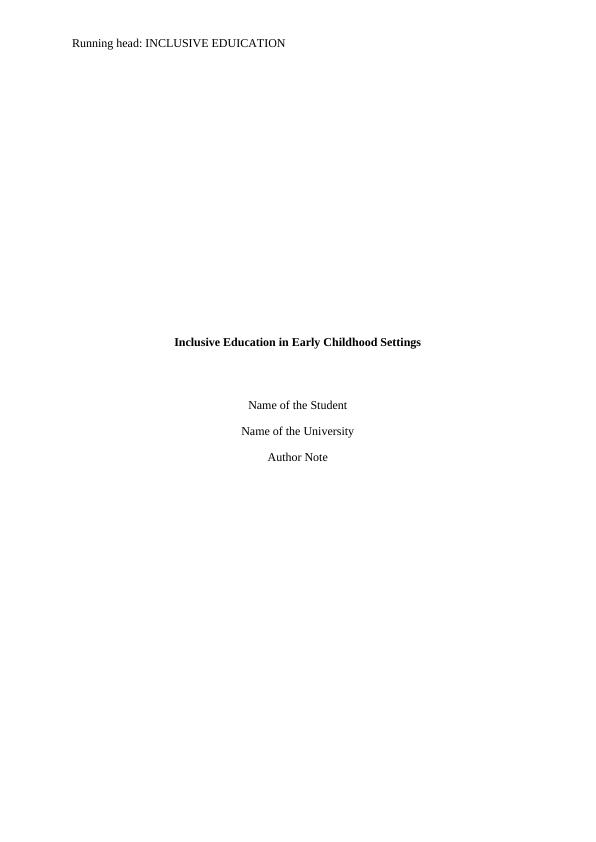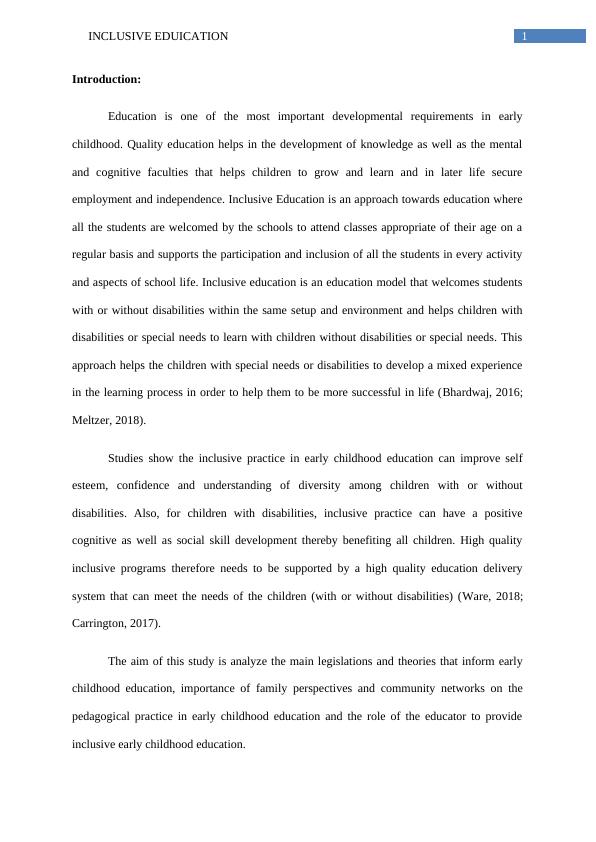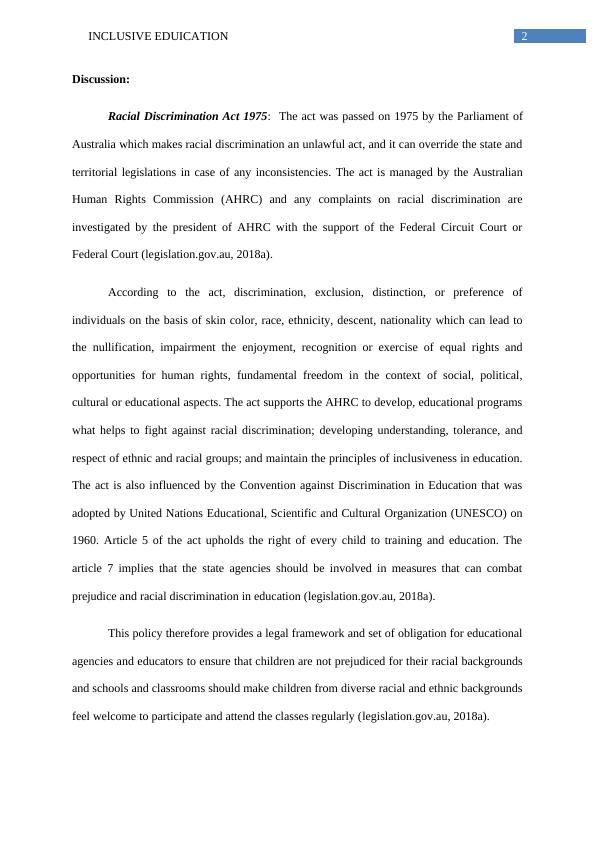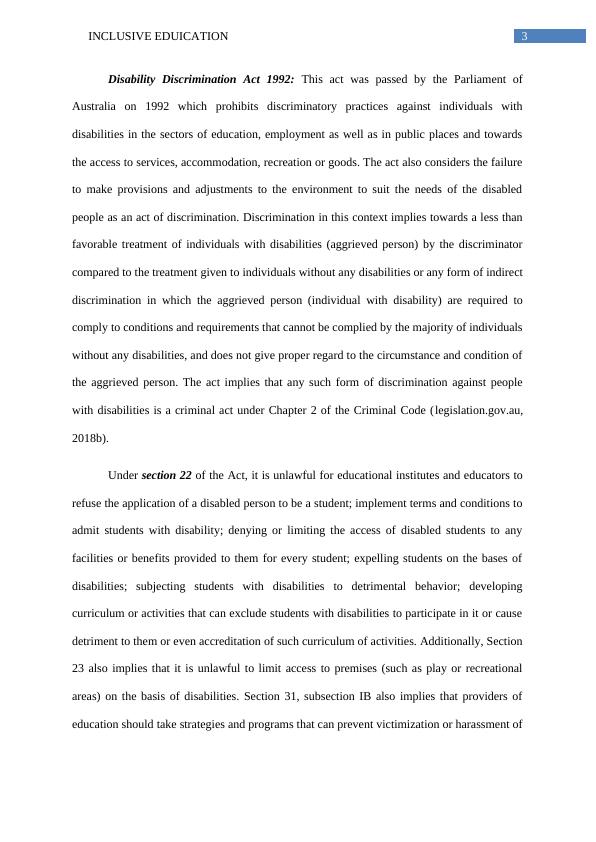Inclusive Education in Early Childhood Settings
Critique current inclusion legislation, debate theories and approaches to inclusive practice, justify the importance of family perspectives and community networks, deliberate on the role of the educator in inclusive education.
14 Pages3896 Words129 Views
Added on 2023-06-07
About This Document
This article discusses the importance of inclusive education in early childhood settings, legislations and theories that inform early childhood education, family perspectives, community networks, and the role of educators in providing inclusive early childhood education.
Inclusive Education in Early Childhood Settings
Critique current inclusion legislation, debate theories and approaches to inclusive practice, justify the importance of family perspectives and community networks, deliberate on the role of the educator in inclusive education.
Added on 2023-06-07
ShareRelated Documents
End of preview
Want to access all the pages? Upload your documents or become a member.
Inclusion in Special Education: Models, Strategies, and Benefits
|15
|3790
|337
Inclusion in Early Childhood Education and Care: Principles and Practices
|7
|1196
|270
ED5705 - Supporting Inclusion In Childhood Study
|12
|3206
|224
Inclusion in Early Childhood Education
|13
|2851
|1
Inclusive Education in Early Childhood - Essay
|12
|3729
|49
Inclusive Early Childhood Education | Report
|11
|2912
|22




